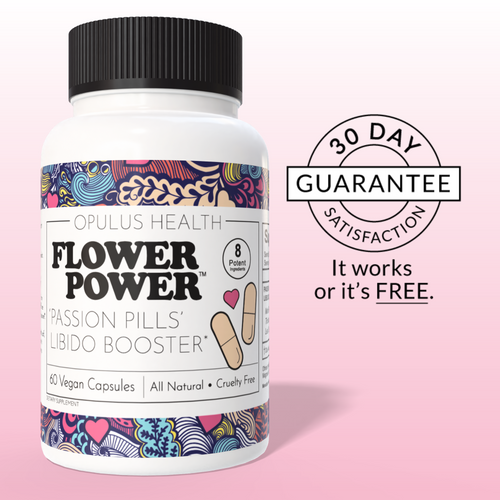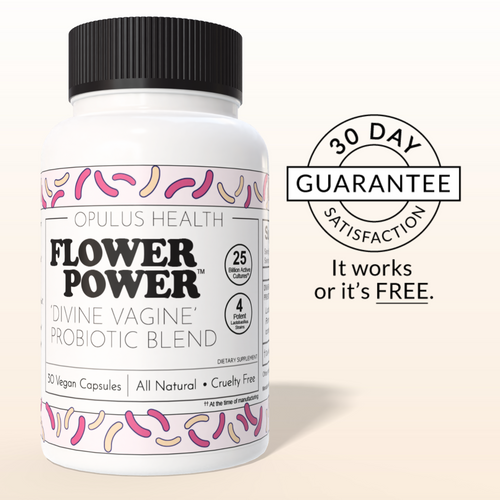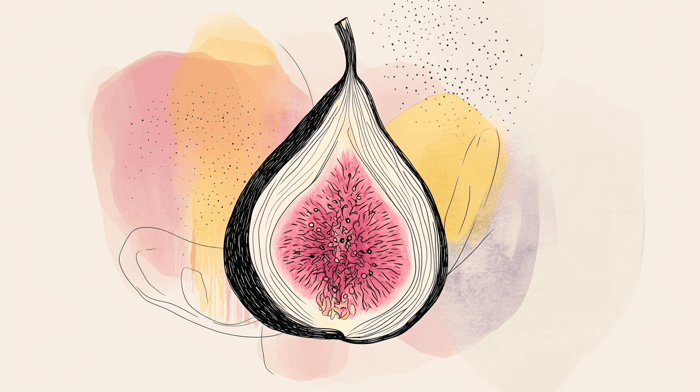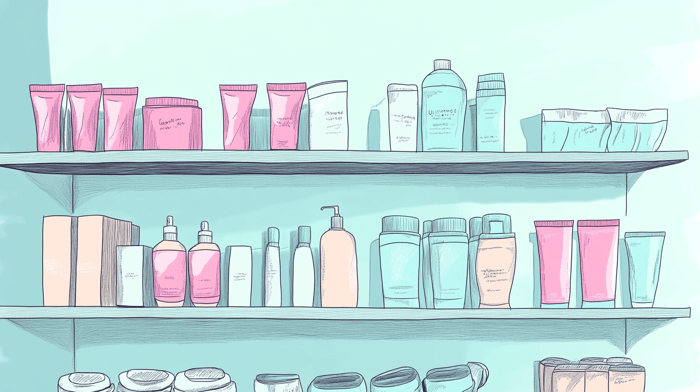We've all been there—after a workout or brisk walk, you feel that uncomfortable dampness down there. While it’s natural to experience some vaginal sweating, excessive sweating can be a nuisance. Luckily, there are ways to manage it.
In this article, we’ll explore why we sweat downstairs, how it happens, and what we can do to reduce it and prevent any issues like vaginal odor or infections.
How The Vagina Gets Sweaty — When It’s Healthy and When It’s Not
Anatomy Overview
The skin around the vagina is much like the skin under our arms, full of hair follicles, sweat, and oil glands. When body temperature rises during physical activity, the skin in this area can get sweaty, and that’s perfectly normal.
However, some women experience more sweating than others, often due to factors like always wearing clothes that restrict airflow or hormonal changes during different life stages such as puberty, pregnancy, and menopause.
Excessive Sweating Down There: When It’s a Medical Condition
In some cases, excessive vaginal sweating may be a sign of a medical condition like hyperhidrosis or an endocrine disorder. If you're struggling with excessive sweating, it’s important to consult with a doctor who may recommend treatments such as over-the-counter (OTC) remedies, antiperspirants with aluminum chloride, or Botox injections to manage sweating.
The Sneaky Relationship Between Diet and Vaginal Sweating
What you eat can influence how much you sweat. Foods high in sulfur, such as onions and garlic, or spicy dishes can increase sweating and even affect body odor. Caffeine is another culprit, as it stimulates the nervous system and raises body temperature. Reducing caffeine intake may help manage sweating.
Other Hidden Causes of Excess Sweating
Stress is another significant factor. When we're anxious or stressed, our bodies release hormones that increase heart rate and raise body temperature, leading to more sweat. Relaxation techniques such as meditation, deep breathing, and regular exercise can help reduce stress-related sweating.
How Sweating Affects Vaginal Health
Sweating can impact your vaginal health in several ways:
- Sweat affects vaginal pH: The vagina has a slightly acidic pH, which helps prevent infections. However, sweat, which contains substances like ammonia and sodium, can disrupt this balance, potentially leading to infections.
- Decomposing sweat breeds bacteria: When sweat decomposes, it creates an ideal environment for bad bacteria to grow, which can cause vaginal odor and infections.
- Sweat causes rashes and chafing: When sweat makes clothing stick to the skin, it can lead to friction, which in turn causes rashes or vaginal chafing, especially in tight clothing.
4 Proven Ways to Protect Your Vaginal Health
To reduce the risk of infection and discomfort from sweating, follow these tips:
- Choose breathable underwear: Cotton underwear allows air to flow, reducing moisture buildup. Consider switching to cotton if you’re not already using it.
- Reduce excess sweating: Drinking more water can help regulate body temperature and reduce sweating.
- Clean up promptly: After exercising or sweating, clean up as soon as possible. If you can't shower right away, use wipes to freshen up and reduce bacteria buildup.
- Develop a skincare routine for your nether regions: Treat your intimate area with care. Invest in moisture-wicking underwear and use gentle cleansers or cornstarch-based powders to absorb excess moisture. Always consult a doctor before using any new products on this sensitive area.
Natural Remedies for Vaginal Issues Caused by Excessive Sweating
If you experience rashes or chafing due to sweating, here are a few natural remedies:
- Witch hazel: Known for its soothing properties, witch hazel can reduce moisture and soothe irritated skin.
- Aloe vera gel: Aloe vera helps cool and heal the skin, making it useful for relieving rashes and reducing sweating.
- Chamomile tea: With anti-inflammatory properties and a calming effect, chamomile tea is great for reducing stress-induced sweating.
As always, consult your healthcare provider before trying new remedies to ensure they're safe for you.
Conclusion
Sweating is a natural part of life, but by taking steps to manage it, you can protect your vaginal health and feel more comfortable. Stay mindful of your body, practice good hygiene, and try out these tips to stay fresh and healthy.












